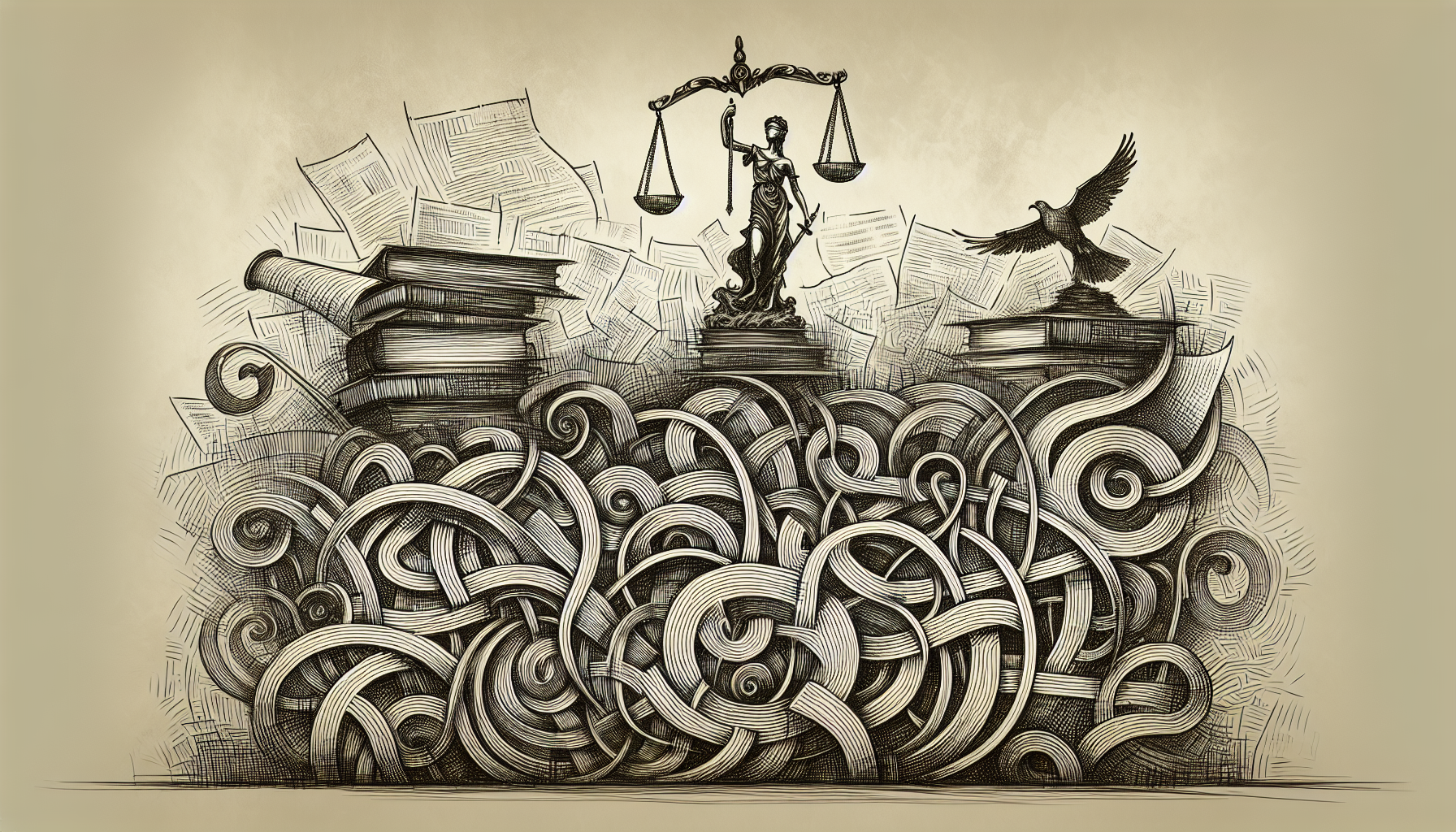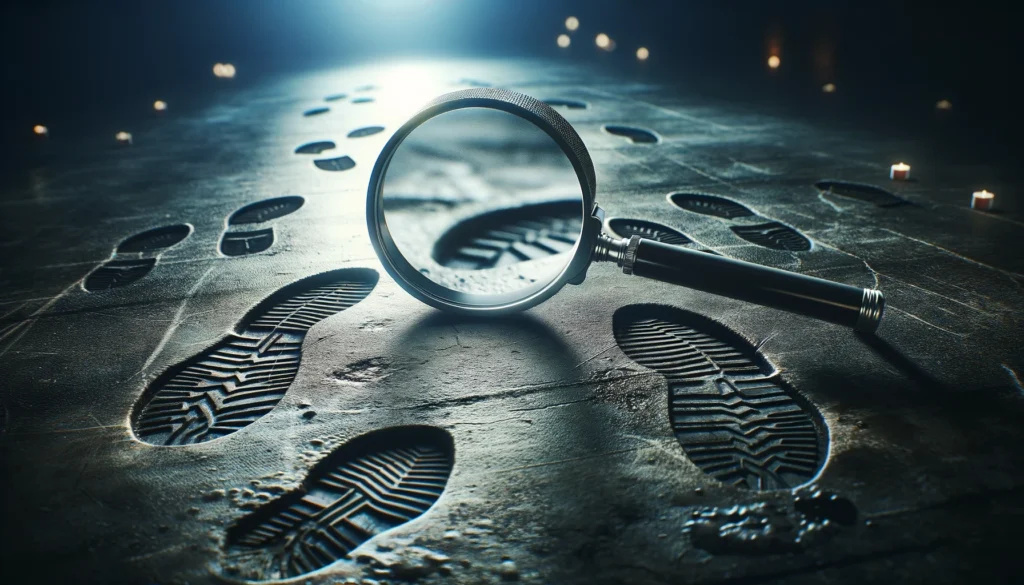
Opening the Case Docket: The Potential of ChatGPT in Legal Research
In the ever-evolving field of criminal defense, leveraging advanced technologies like artificial intelligence can be a game-changer for paralegals. Embracing AI tools such as ChatGPT not only enhances efficiency but also elevates the quality of legal research. ChatGPT, a language model developed by OpenAI, offers unparalleled capabilities, including quick retrieval of statutes, case laws, and even drafting legal briefs. This makes it an invaluable asset, particularly in the time-sensitive realm of criminal defense.
Given the immense volume of legal information, ChatGPT’s ability to process and summarize vast datasets can transform how paralegals approach their research tasks. Its intuitive interface allows for precise information extraction, significantly cutting down on the time required to gather and assimilate data.
Cracking the Code: Understanding Key Criminal Defense Statutes
The bedrock of any criminal defense strategy lies in understanding the pertinent statutes. These statutes define the legal framework and parameters within which defense attorneys operate. However, locating the exact provisions relevant to a case can be laborious.
ChatGPT can simplify this process by swiftly identifying and summarizing relevant statutes. For instance, consider the following prompts:
- “Summarize the elements of the crime of burglary under [specific state] law.”
- “What are the sentencing guidelines for a first-time offender under [specific statute]?”
By using such tailored prompts, paralegals can quickly pinpoint the information they need, allowing them to focus on developing a robust defense strategy. This expedited access to statutes ensures greater accuracy and a more comprehensive understanding of the legal landscape.
Next, we will explore how ChatGPT can aid in navigating the complex realm of precedents in criminal defense.
Also read:
Precedent Navigation: Sifting Through Prior Case Law with AI
In criminal defense, precedent plays a pivotal role in shaping legal arguments and strategies. Drawing parallels from previous case law can significantly bolster a defense, but sifting through countless cases can be daunting.
ChatGPT can alleviate this burden by providing well-organized summaries of relevant precedents. Here are some nuanced prompts to refine your search results:
- “Find cases similar to [case name or specifics] and summarize their outcomes.”
- “What are the key rulings related to [specific legal principle]?”
Such prompts enable paralegals to efficiently gather case law that is directly pertinent to their current cases. This not only saves time but also enhances the depth of legal research. By leveraging ChatGPT’s capabilities, paralegals can uncover subtleties and nuances in case law that might otherwise be overlooked.
As we move forward, let’s discuss how ChatGPT can assist in drafting powerful legal briefs.
Also read:
Brief Drafting Brilliance: Crafting Powerful Legal Briefs with AI Assistance
Constructing compelling legal briefs is an essential skill for paralegals in criminal defense. A well-crafted brief can significantly influence the outcome of a case, but drafting one requires meticulous attention to detail and comprehensive legal knowledge.
ChatGPT can aid in this process by offering both structural and substantive support. For example, prompts such as:
- “Outline the key arguments for a motion to suppress evidence in a DUI case.”
- “Provide supportive case law and statutes for an entrapment defense.”
These prompts help gather critical information, ensuring that the legal arguments presented are both robust and coherent. Additionally, ChatGPT can assist in checking the coherence and strength of the arguments, providing suggestions for improvement where necessary.
In the next section, we’ll explore how ChatGPT can enhance efficiency in drafting legal motions.
Also read:
Motion Mastery: Enhancing Efficiency in Drafting Legal Motions
Drafting precise and effective legal motions is crucial in criminal defense. The specificity and accuracy of these documents can influence court rulings significantly. ChatGPT is particularly useful in this regard, providing templates and customizations to meet specific case requirements.
Consider the following creative prompts:
- “Generate a template for a motion to dismiss based on insufficient evidence.”
- “Customize a motion for a new trial due to newly discovered evidence.”
These prompts facilitate the creation of sophisticated legal motions, ensuring they adhere to court standards and specificity requirements. By leveraging ChatGPT, paralegals can streamline this process, ensuring their motions are both precise and persuasive.
Next, we will delve into how ChatGPT can assist in the critical phase of discovery compilation and analysis.
Also read:
Discovery Diligence: Facilitating Evidence Compilation and Analysis
Discovery is a cornerstone of criminal defense, involving the painstaking compilation and analysis of evidence. ChatGPT can significantly streamline these processes by offering innovative techniques for data extraction and organization.
Tailored prompts such as:
- “Summarize all evidence related to the defendant’s alibi.”
- “Organize witness statements relevant to the prosecution’s case.”
By using these prompts, paralegals can efficiently manage evidence, ensuring nothing is overlooked. Furthermore, AI-assisted analysis tools can enhance the review process, helping in identifying patterns or inconsistencies that could be pivotal in the case.
Let’s now explore how ChatGPT provides invaluable insight for trial preparation.
Also read:
AI in the Courtroom: Preparing for Trials with ChatGPT’s Insight
Preparing for trials involves meticulous planning, from drafting opening and closing statements to strategizing witness examinations. ChatGPT can offer valuable insights and assistance in this high-stakes phase.
Effective prompts include:
- “Draft an opening statement for a defense in a felony assault case.”
- “Provide key points for cross-examining the prosecution’s expert witness.”
By leveraging these prompts, paralegals can craft persuasive statements and prepare incisive questions for witnesses. ChatGPT’s insights can also be invaluable in rehearsing and refining courtroom strategies, ensuring readiness for trial.
In the next section, we’ll look at how AI aids in staying updated on legal changes.
Also read:
Legal Research Revolution: Staying Updated on Legal Changes
The legal landscape is constantly evolving, with new statutes and precedents emerging regularly. Keeping abreast of these changes is essential for effective criminal defense.
Prompts such as:
- “Provide the latest updates on [specific statute or case law].”
- “Summarize recent changes in criminal sentencing guidelines in [specific jurisdiction].”
With these prompts, paralegals can quickly access the latest legal developments, ensuring their defense strategies remain current and well-informed.
Next, we’ll address the ethical considerations and best practices when integrating AI in legal work.
Also read:
Ethical Considerations and Best Practices: Navigating AI’s Role in Legal Work
While the advantages of AI in legal research are numerous, ethical considerations must be carefully navigated. Ensuring the use of AI aligns with legal standards and confidentiality is paramount.
Best practices include:
- Always cross-reference AI-provided information with primary sources.
- Ensure data privacy and security are maintained.
- Use AI as a supplementary tool rather than a sole source of information.
By adhering to these practices, paralegals can responsibly and effectively integrate AI into their workflow, maximizing its benefits while mitigating potential risks.
Finally, let’s recap the transformative impact of AI on paralegal work.
Also read:
The Final Verdict: Embracing AI for a Smarter Legal Workflow
In summary, integrating ChatGPT into criminal defense research and documentation significantly enhances efficiency and accuracy. From expedited statute retrieval to sophisticated motion drafting, AI transforms the paralegal workflow. As we embrace these advancements, the future of paralegal work will undoubtedly become smarter and more dynamic.


